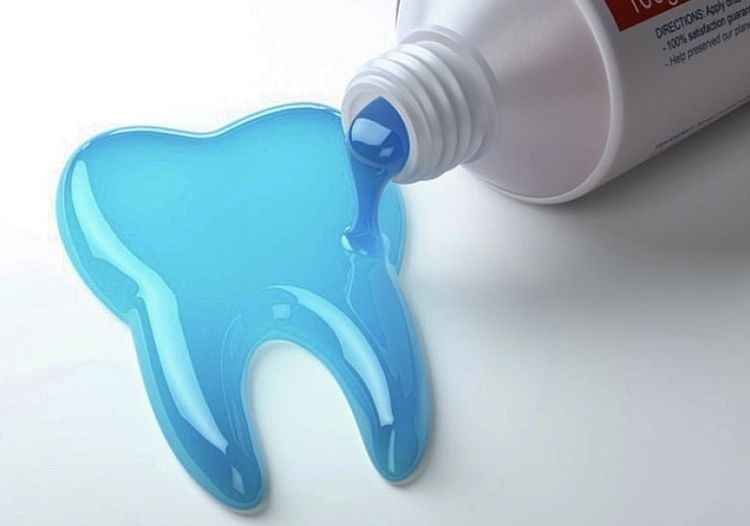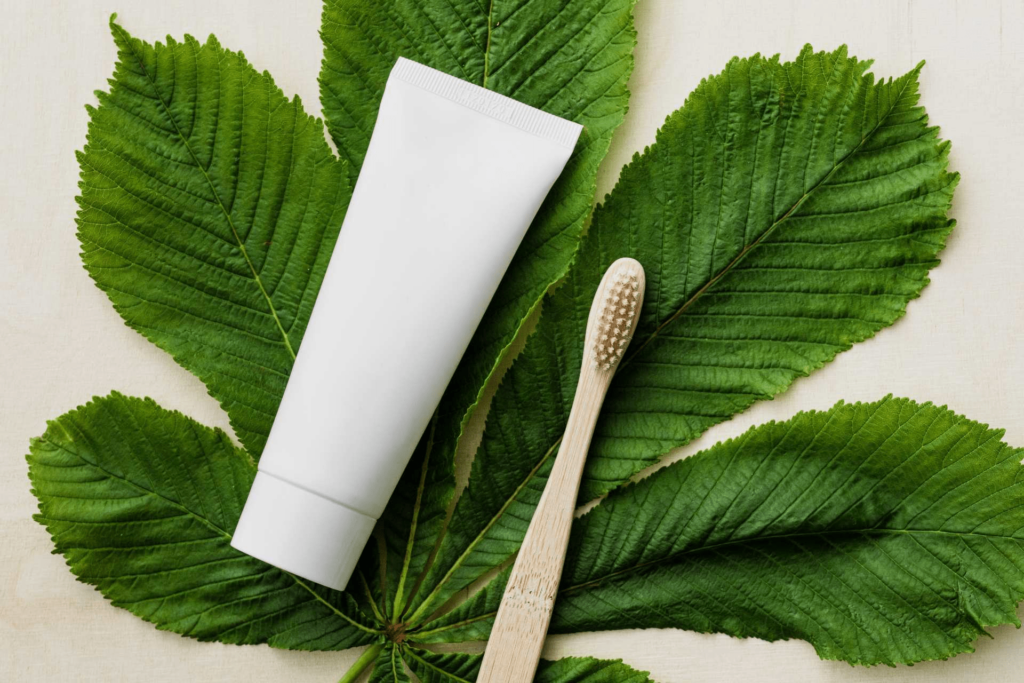
источник: pinterest
Поддержание хорошего здоровья полости рта имеет решающее значение для общего благополучия. Важным аспектом гигиены полости рта является регулярное и правильное использование зубной пасты. Зубная паста служит мощным инструментом для предотвращения множества проблем с зубами, включая кариес, заболевания десен и неприятный запах изо рта. Она не только помогает очищать и защищать наши зубы, но и освежает наше дыхание, оставляя нам уверенную улыбку.
В этой записи блога мы более подробно рассмотрим ключевые факторы, которые делают зубную пасту хорошей и эффективной для поддержания оптимального здоровья полости рта. Понимая ингредиенты и учитывая особые потребности в уходе за полостью рта, вы будете лучше подготовлены к выбору правильного средства. зубная паста для ваших индивидуальных потребностей. Давайте же разберемся, что делает зубную пасту по-настоящему исключительной!
Из чего сделана зубная паста?

Основные ингредиенты
Чтобы полностью понять, что делает зубную пасту хорошей, важно понимать роль ее ключевых ингредиентов. Вот некоторые основные компоненты, которые присутствуют в большинстве формул зубной пасты:
1. Фтор
Одним из важнейших ингредиентов зубной пасты является фторид. Он помогает предотвратить кариес зубов укрепляя зубную эмаль и делая зубы более устойчивыми к кислотным атакам зубного налета и сахаров. Ищите зубную пасту, содержащую фтор, чтобы обеспечить эффективную профилактику кариеса.
2. Абразивные материалы
Зубная паста содержит мягкие абразивы, такие как карбонат кальция или гидратированный диоксид кремния. Эти ингредиенты помогают удалить зубной налет, поверхностные пятна и мусор, оставляя наши зубы чистыми и гладкими. Однако важно использовать зубную пасту с мягкими абразивными частицами, чтобы избежать эрозии эмали или чувствительности зубов.
3. Поверхностно-активные вещества
Поверхностно-активные вещества, такие как лаурилсульфат натрия, отвечает за пенообразование зубной пасты. Они помогают равномерно распределить зубную пасту по всему рту, обеспечивая лучший контакт с зубами и деснами. Вспенивание также помогает удалить частицы пищи и бактерии, усиливая общий эффект очистки.
Дополнительные ингредиенты
Помимо основных ингредиентов, упомянутых выше, зубная паста может также содержать дополнительные ингредиенты для решения конкретных проблем со здоровьем полости рта:
1. Десенсибилизирующие средства
У некоторых людей может возникнуть чувствительность зубов к горячей, холодной или сладкой пище. Зубная паста с десенсибилизирующими веществами, такими как нитрат калия или хлорид стронция, может помочь облегчить чувствительность и принести облегчение.
2. Противомикробные средства
Для борьбы с бактериями и профилактики заболеваний десен некоторые формулы зубных паст включают антимикробные вещества, такие как триклозан или фторид. Эти ингредиенты помогают подавлять рост бактерий, уменьшая образование зубного налета и способствуя здоровью зубов и десен.
Понимание ингредиентов зубной пасты имеет решающее значение для принятия осознанного решения, соответствующего вашим потребностям в области здоровья полости рта. Тем не менее, важно проконсультироваться со стоматологом для получения индивидуальных рекомендаций, основанных на вашем конкретном состоянии зубов и потребностях.
Учет потребностей в области здоровья полости рта

источник: pinterest
Различные составы зубных паст
Теперь, когда мы знаем основные ингредиенты зубной пасты, давайте рассмотрим различные ее составы, предназначенные для решения конкретных проблем со здоровьем полости рта:
1. Зубная паста от кариеса
Кариес — это распространенная стоматологическая проблема, вызванная накоплением зубного налета и разрушением зубов. Зубная паста, предназначенная для профилактики кариеса, обычно содержит более высокие уровни фторида, который помогает укрепить зубную эмаль и защитить от кислотных атак. Использование зубной пасты с высоким содержанием фторида может значительно снизить риск развития кариеса.
2. Отбеливающая зубная паста
Многие люди хотят иметь более яркую и белую улыбку. Отбеливающая зубная паста содержит мягкие абразивы или химические вещества, которые помогают удалить поверхностные пятна, придавая зубам заметно более яркий вид. Однако важно отметить, что отбеливающая зубная паста может быть не столь эффективна для глубоких пятен или обесцвечивания, для которых может потребоваться профессиональное стоматологическое лечение.
3. Зубная паста для чувствительных зубов
Люди с чувствительностью зубов испытывают дискомфорт или боль при употреблении горячей или холодной пищи и напитков. Зубная паста, специально разработанная для чувствительных зубов, содержит десенсибилизирующие вещества, которые помогают уменьшить чувствительность. Такие составы обычно содержат меньше абразивов, чтобы свести к минимуму любое потенциальное раздражение.
Конкретные проблемы со здоровьем полости рта
Помимо общих потребностей в области здоровья полости рта, упомянутых выше, зубная паста может также решать конкретные проблемы:
1. Здоровье десен
Поддержание здоровья десен жизненно важно для общего здоровья полости рта. Некоторые варианты зубной пасты направлены на улучшение здоровья десен, включая такие ингредиенты, как антибактериальные агенты или растительные экстракты, известные своими успокаивающими и противовоспалительными свойствами. Эти варианты зубной пасты могут помочь в борьбе с заболеваниями десен и способствовать оптимальному здоровью десен.
2. Борьба с зубным камнем
Зубной камень или зубной камень — это затвердевший налет, который может привести к заболеванию десен и другим проблемам с зубами. Зубная паста, предназначенная для контроля зубного камня, содержит специальные ингредиенты, которые помогают предотвратить образование зубного камня, сохраняя зубы чистыми и снижая риск возникновения проблем с деснами.
3. Защита эмали
Наша зубная эмаль действует как защитный барьер для наших зубов. Однако она может быть ослаблена кислотами, присутствующими в пище, напитках и бактериальными атаками. Некоторые формулы зубных паст направлены на усиление защиты эмали путем включения минералов, таких как кальций и фосфат, которые могут помочь укрепить и реминерализовать зубную эмаль.
Осознавая свои особые потребности в области здоровья полости рта, вы можете выбрать формулу зубной пасты, которая наилучшим образом соответствует им. Тем не менее, всегда рекомендуется проконсультироваться со своим стоматологом, поскольку он может дать персонализированные рекомендации, основанные на состоянии ваших зубов и проблемах.
На что обращать внимание при выборе зубной пасты?

Рекомендации стоматологов
При рассмотрении различных формул и потребностей в области здоровья полости рта важно обратиться за советом к стоматологам. Стоматологи обладают глубокими знаниями и могут дать ценные рекомендации на основе состояния вашего здоровья полости рта. Регулярные стоматологические осмотры и консультации могут помочь вам понять ваши конкретные потребности в области здоровья полости рта и выбрать наиболее подходящую зубную пасту.
Личные предпочтения и потребности
Помимо рекомендаций стоматолога, при выборе правильной зубной пасты следует учитывать некоторые личные предпочтения и потребности:
1. Вкус и аромат
Зубная паста выпускается в широком ассортименте вкусов, таких как мята, корица, фрукты и т. д. Выбор вкуса, который вам нравится, делает чистку зубов более приятной и способствует регулярной гигиене полости рта.
2. Текстура и консистенция
Зубная паста может иметь разную текстуру, от гелей до паст. Некоторые люди предпочитают более гладкие гели, в то время как другие предпочитают традиционную консистенцию пасты. Экспериментируя с различными текстурами, вы можете найти ту, которая будет комфортной и эффективной во время чистки зубов.
3. Аллергия и чувствительность
Обратите внимание на любые аллергии или чувствительность, которые у вас могут быть. У некоторых людей может быть определенная аллергия на определенные ингредиенты, присутствующие в формулах зубной пасты. Чтение списка ингредиентов и выбор гипоаллергенной или натуральной зубной пасты может помочь избежать любых аллергических реакций.
Принимая во внимание рекомендации стоматолога и ваши личные предпочтения, вы сможете выбрать зубную пасту, которая не только будет соответствовать вашим потребностям в области здоровья полости рта, но и будет соответствовать вашему вкусу и комфорту.
Заключение

источник: pinterest
В заключение следует отметить, что для понимания того, что делает зубную пасту хорошей, необходимо знать ее основные ингредиенты, такие как: фторид, абразивы, и поверхностно-активные вещества, которые способствуют ее эффективности в поддержании здоровья полости рта. Кроме того, учет конкретных потребностей в области здоровья полости рта, таких как профилактика кариеса, отбеливание зубов, снижение чувствительности или здоровье десен, может помочь в выборе правильной формулы зубной пасты.
Помните, что рекомендации стоматолога, а также личные предпочтения и потребности должны направлять ваш процесс принятия решения. Регулярная чистка зубов, использование зубной нити и плановые осмотры у стоматолога одинаково важны для поддержания оптимального здоровья полости рта наряду с использованием хорошей зубной пасты.
Теперь, когда у вас есть полное представление о том, что представляет собой хорошая зубная паста, сделайте осознанный выбор, чтобы обеспечить себе здоровую улыбку на всю жизнь. Продолжайте улыбаться, продолжайте чистить зубы!
Часто задаваемые вопросы о зубной пасте
- Что такое фторидная зубная паста?
Фторсодержащая зубная паста содержит фторид — минерал, который помогает укрепить зубную эмаль и предотвратить кариес. Он считается важным ингредиентом зубной пасты для эффективной профилактики кариеса.
- Что такое угольная зубная паста?
Угольная зубная паста — это тип зубной пасты, которая содержит активированный уголь. Она известна своими абсорбирующими свойствами и, как полагают, помогает удалять поверхностные пятна и обесцвечивание зубов.
- Как действует угольная зубная паста?
Зубная паста с древесным углем в первую очередь рекламируется как средство для отбеливания зубов. Утверждается, что она удаляет поверхностные пятна и улучшает яркость зубов. Однако ее долгосрочное воздействие на зубную эмаль и эффективность по сравнению с традиционными методами отбеливания все еще являются предметом дискуссий и дальнейших исследований.
- Что можно использовать вместо зубной пасты?
Хотя зубная паста является рекомендуемым средством для поддержания гигиены полости рта, в экстренных ситуациях или при отсутствии зубной пасты вы можете использовать обычную воду или жидкость для полоскания рта для полоскания рта или небольшое количество пищевой соды, смешанной с водой, в качестве временной замены. Однако важно продолжать использовать обычную зубную пасту для оптимального ухода за полостью рта.
- Что отбеливает зубы в зубной пасте?
Зубная паста часто содержит такие ингредиенты, как мягкие абразивы, перекись водорода или пищевая сода, которые помогают удалить поверхностные пятна с зубов и способствуют отбеливающему эффекту. Однако для более значительного и длительного отбеливания зубов могут потребоваться профессиональные стоматологические процедуры.


